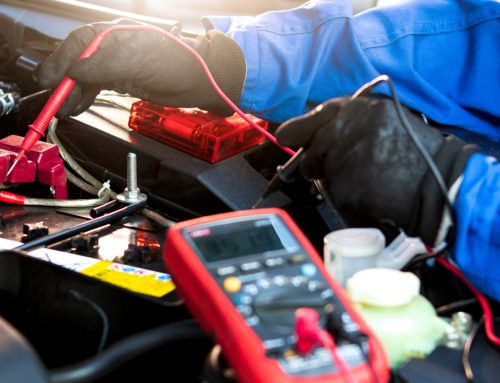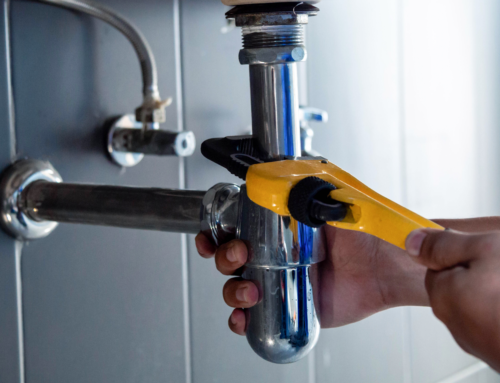If your operations involve working with major pollutants — such as those in general contracting, fuel delivery, and garage/auto repair work— then you need pollution liability insurance. However, almost every business these days deals with pollutants in some form, whether they realize it or not, so it should always be a consideration.
Whether sudden and accidental or occurring gradually, the release of a pollutant can cause serious damage to the environment and community, but also to your business, project, reputation, and bottom line. And suffering an uninsured loss could be hard to recover from.
Pollution liability insurance — also known as environmental impairment liability insurance — is designed to help protect you from costly expenses related to environmental damage. It goes above and beyond standard commercial general liability and property policies, which usually exclude this type of coverage.
While environmental incidents are infrequent, when they do happen, they’re often large, costly, and complicated — and can permanently damage your company’s reputation (and that’s hard to put a price on).
Why should you consider pollution insurance?
A pollutant is an irritant or contaminant, such as smoke, vapour, fumes, acids, chemicals, and waste. Anyone who works with these substances should consider supplementary pollution liability insurance — after all, it’s not just accidents that can cause serious environmental damage.
For example, say someone tries to steal a solvent stored in a tank on your property and, in the process, half of that solvent spills out of the tank. The solvent then leaks into the soil, which contaminates a nearby property and waterway — and you’re held liable.
Or, say you’re hired to renovate a building. During construction, a water pipe is accidentally pierced, which leads to a slow leak that continues for weeks before being discovered, resulting in mould. But the clean-up costs may not be covered under your CGL policy.
Environmental impairment isn’t just restricted to your property or worksite. If pollution is emanating from materials while being transported by your business or by a carrier on your behalf, you could be held liable.
Any of these incidents — large or small — could lead to lawsuits, legal fees, investigations, medical expenses, area cleanup, and reputational damage. While pollution insurance can’t reverse what happened, it can help you recover the costs of clean-up and remediation.
What does this coverage protect you against?
Pollution insurance includes a number of different coverages, depending on your specific business needs. These include:
Contractors pollution liability (CPL): This provides coverage for work done by or on behalf of a contractor resulting in the release of a pollutant into the environment. It can provide protection for both ongoing and completed projects, and may include coverage for property damage, bodily injury, clean-up, legal defense, and regulatory fines.
Premises pollution liability (PPL): This policy provides protection for pollution releases at, on, under, or migrating from a location you own or lease. It includes first-party coverage for business interruption, clean-up, and emergency response costs, as well as third-party coverage for clean-up costs, property damage, and bodily injury. This coverage can also help you comply with common landlord/tenant obligations and other business agreements.
Transportation pollution liability (TPL): Whenever supplies, equipment, or waste is moved, there’s the potential for pollution to be released into the environment. This policy provides protection for pollution emanating from products or materials during loading or unloading while being transported, shipped, or delivered by your business or by a carrier on your behalf. It’s available as an optional coverage with premises pollution liability and contractors pollution liability coverages.
Who needs pollution insurance?
Pollution insurance applies to a wide range of businesses across a wide range of industries — even if you don’t work directly with hazardous materials. For example, if you own or lease real estate, you’re subject to environmental risks. And, with ESG (environmental, social, and governance) agendas becoming increasingly important, obtaining premises pollution liability (PPL) insurance is also good business practice.
But some professions are at even higher risk. For example, if you’re a contractor that works with hazardous substances, CPL insurance is a must. Professions that should strongly consider pollution insurance include:
- Carpenters
- Fuel dealers
- General contractors
- Landscaping contractors
- Machinery manufacturers
- Mechanical contractors
- Septic tank contractors
- Water, sewer, and pipeline contractors
When it comes to environmental damage, it takes only one mishap to cause debilitating damage to your business. Prevention is always the best approach, but accidents happen — and pollution insurance can help you repair the damage and get back to business faster.
Protect yourself and your business
Unfortunately, you can’t always control what happens to your business. You can, however, control how prepared you are. Having the right protection in place can make a huge difference. To learn more about protecting yourself and your business, visit our Pollution Liability Insurance page today.
This blog is provided for information only and is not a substitute for professional advice. We make no representations or warranties regarding the accuracy or completeness of the information and will not be responsible for any loss arising out of reliance on the information.






